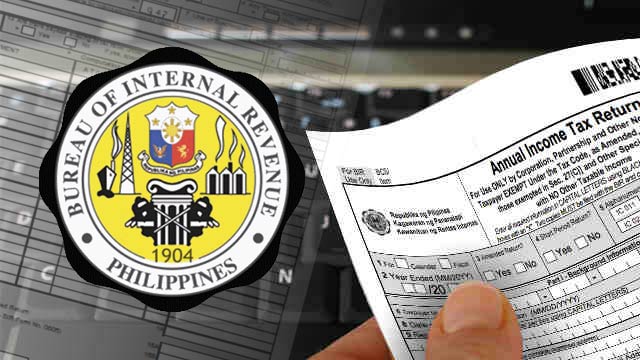In the Philippines, a 13th month pay is a mandatory benefit granted to employees under Presidential Decree No. 851. It is an additional month’s salary that should be paid to employees on top of their regular 12 months’ salary.
The 13th month pay is typically given in December, before Christmas and other year-end celebrations, but can be given anytime between January 1 and December 24 of each year.
It is intended to help employees cover their expenses during the holiday season and to recognize their hard work and loyalty throughout the year. The 13th month pay is equivalent to 1/12 of the total basic salary earned by the employee during the year. However, it does not include other allowances and benefits such as overtime pay, holiday pay, and commissions.
Table of Contents
Is 13th month pay unique to the Philippines?
While the concept of a 13th month pay is unique to the Philippines, other countries offer similar employee benefits.
- Brazil – The Brazilian government mandates a 13th salary, equivalent to one month’s salary, to be paid to employees in December.
- Colombia – Colombian law requires employers to pay employees a “bonus” equivalent to one month’s salary in December and June.
- Ecuador – Ecuadorian law mandates that employees receive a “13th salary” in December, equivalent to one month’s salary, plus an additional “14th salary” if the employee has worked for the company for more than five years.
- Mexico – Mexican labor law requires employers to pay employees a “Christmas bonus” equivalent to at least 15 days’ salary in December.
- Peru – Peruvian law mandates that employees receive a “Christmas bonus” equivalent to one month’s salary in December.
Impact of 13th month pay
The introduction of 13th month pay in the Philippines has brought significant positive and negative impacts.
Economic stimulus
The payment of the 13th month pay significantly boosts the economy, as it increases the purchasing power of employees. This leads to increased consumer spending, which can help stimulate economic growth.
Employee morale and productivity
The 13th month pay is an important benefit for employees, as it provides them with an additional source of income. This can positively impact employee morale and productivity, as employees feel valued and recognized for their work.
Poverty alleviation
The 13th month pay can help alleviate poverty in the Philippines, as it provides additional income to workers who may be struggling to make ends meet. This can help improve the standard of living for many families in the country.
Cost of business
While the 13th month pay can be a significant cost for businesses, it can also positively impact their operations. By providing employees with a valuable benefit, businesses can increase employee loyalty and reduce turnover rates, which can lead to cost savings in the long run.
Inflation
The payment of the 13th Month Pay can impact inflation rates, as it can increase consumer spending and demand for goods and services. This can lead to higher prices and inflationary pressures in the economy.

Importance of understanding 13th month pay
It is crucial to discuss 13th month pay because it is a mandated benefit provided to employees in the Philippines and a substantial component of their compensation package. Thus, it has significant ramifications for both companies and employees.
Legal compliance
Just as their contribution to SSS and PhilHealth for their workers, employers must be aware of their legal obligations to provide 13th month pay to their employees under Presidential Decree No. 851. Failure to comply with this requirement may result in penalties and legal sanctions.
Employee retention and motivation
The 13th month pay is an important factor contributing to employee retention and motivation. Employees who receive fair compensation, including the 13th month pay, are more likely to be satisfied with their jobs and less likely to look for other employment opportunities.
Financial planning
Employees who receive the 13th month pay can use it to cover their expenses during the holiday season or to save for future expenses. Discussing the topic of 13th month pay can help employees plan their finances more effectively.
Employer branding
Employers who provide the 13th month pay and other benefits are more likely to be perceived as fair and competitive by their employees. This can contribute to a positive employer brand and help attract and retain top talent.
Computation of the 13th month pay
In the Philippines, the 13th month pay is based on an employee’s total basic salary earned within a calendar year. This includes all earnings provided to an employee for services rendered, but excludes extra allowances and benefits such as overtime pay, holiday pay, and commissions.
13th Month Pay = Total Basic Salary Earned / 12
To illustrate, let’s say an employee earns a basic monthly salary of P20,000 and has worked for the entire calendar year (January to December).
Total Basic Salary Earned = Monthly Basic Salary x 12 months = P20,000 x 12 = Php 240,000
13th Month Pay = Total Basic Salary Earned / 12 = P240,000 / 12 = P20,000
Therefore, the employee is entitled to a 13th month pay of P20,000.
It is important to note that the above formula only applies to employees who have worked for the entire calendar year. For employees who have not worked for the entire year or for less than 12 months, the 13th month pay should be prorated based on the number of months worked.
Who are entitled to receive the 13th month pay?
All rank-and-file employees in the Philippines are entitled to receive the 13th month pay, regardless of the nature of their employment, designation, or status. This includes employees who are paid daily, weekly, monthly, or piece-rate, as long as they have worked for at least one month during the calendar year. It also covers probationary, regular, and contractual employees and those who work for the government or in the private sector.
Who are exempt from receiving 13th month pay?
While the 13th Month Pay is a mandatory benefit in the Philippines, there are some exemptions or exclusions from its coverage.
- Government employees who are already receiving a year-end bonus equivalent to one month’s basic salary.
- Employers who are considered as “micro-businesses” or “small businesses” with total assets of not more than three million pesos (P3,000,000) and who have ten (10) or fewer employees.
- Employers who are exempted by law or regulations from paying the 13th Month Pay.
- Domestic workers or house helpers who are not covered by the Labor Code of the Philippines.
- Those who are paid on a purely commission basis or those who do not receive a fixed or guaranteed basic salary.
It’s important to note that the exemptions from the 13th month pay may vary depending on the specific laws and regulations that apply to a particular industry or type of employment. Employers should consult with the Department of Labor and Employment (DOLE) or a legal expert to ensure compliance with the law.
Payment of the 13th month pay
In compliance with Filipino labor rules, companies must pay the 13th month pay to their employees no later than December 24 of each year. The payment should be made in cash and equal one-twelfth of the employee’s annual base wage.
Employers have the option to pay 13th month pay either in full or in two installments. If the employer elects to pay in two installments, the first half must be paid on or before June 30 and the second half must be paid on or before December 24 of the same year.
Importantly, 13th month pay is a mandatory benefit mandated by law, and employers that refuse to comply with its payment may be liable to penalties and legal punishments. If an employer fails to pay the 13th month pay or pays less than the statutory amount, the employee may submit a complaint with the Department of Labor and Employment (DOLE) or pursue legal recourse to enforce their entitlement to the benefit.
Penalty for non-payment
Employers who fail to comply with the payment of the 13th Month Pay may be subject to penalties and legal sanctions. If an employer fails to pay the 13th month pay or pays less than the required amount, the employer may be liable for the following penalties:
- A fine of not less than P10,000 and not more than P100,000, at the court’s discretion.
- Imprisonment for not less than three months and not more than three years.
In addition to these penalties, the employer may also be required to pay the unpaid 13th month’s pay and other benefits and damages that the employee may be entitled to under the law.
Employees who are not paid their 13th month pay or paid less than the required amount may file a complaint with the Department of Labor and Employment (DOLE) or seek legal remedies to enforce their right to the benefit.
Challenges of 13th month pay implementation
The implementation of the 13th month pay in the Philippines poses several challenges for both employers and employees.
Cost of Labor
For employers, the 13th month pay represents an additional cost of labor, which can be a significant burden for businesses, especially small and medium-sized enterprises. Employers may find it challenging to allocate funds for the payment of the 13th Month Pay, especially during times of economic downturn.
Compliance
The calculation and payment of the 13th Month Pay require strict compliance with Philippine labor laws and regulations. Employers must accurately determine the benefit amount and ensure that it is paid on time to all eligible employees. Non-compliance with the 13th Month Pay requirements can result in penalties and legal sanctions.
Misunderstandings
Employees may have misunderstandings about the 13th month pay, especially regarding who is entitled to receive it and how it should be calculated. This can lead to disputes between employees and employers, which can be time-consuming and costly to resolve.
Financial planning
Employees may find it challenging to budget their 13th month pay, especially if they are not used to receiving a lump sum payment. Some employees may be tempted to spend their 13th month pay immediately, which can lead to financial difficulties in the long run.
Exemptions
Some employees are exempted from receiving the 13th month pay, which can be a source of confusion and dissatisfaction. This can lead to disputes and complaints, affecting employee morale and productivity.
Conclusion
The 13th month benefit is a substantial perk for Filipino workers. The perk positively affects the economy by stimulating consumer spending and seasonal sales.
Yet, the 13th month compensation can be difficult for small firms and employers to give.
There have been conversations about modifying the tax rates and exemptions for the 13th month salary in the future to reduce the burden on companies while ensuring that employees receive the full benefit. The 13th month pay is a significant benefit for Filipino workers and has helped to economic growth, but it also raises issues that must be addressed to ensure its sustained efficacy.








